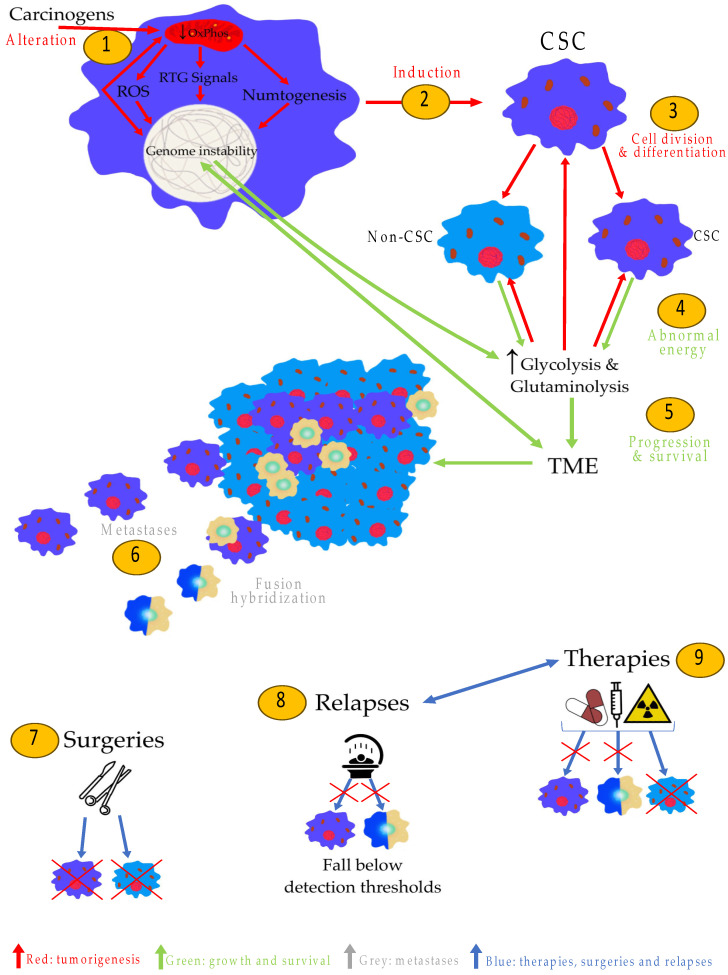Figure 6.
Synthesis of MSCC. (1) Carcinogens alter OxPhos in stem cell(s). (2) OxPhos alteration in stem cells induces cancer stem cells (CSCs). (3) CSCs can be divided into other CSCs or non-cancer stem cells (non-CSCs). (4) Metabolism of cancer cells compensates for OxPhos insufficiency with glycolysis and glutaminolysis. The chronic ROS, the RTG signals, and the numtogenesis induce overexpression of oncogenes and inactivation of tumor-suppressor genes, which contribute to abnormal energy metabolism in cancer. (5) The abnormal metabolism and oncogenes contribute to generating the tumor microenvironment (TME). The acidification, inflammation, and chronic production of ROS contribute to genome instability and somatic mutations. (6) Metastases are produced by CSCs directly (rare) or by fusion hybridization with macrophages. (7) Local surgeries in non-metastatic cancers can target non-CSCs and CSCs. (8) CSCs and their fusion hybridizations with macrophages are present in low numbers and can fall below detection thresholds. (9) Therapies can target only non-CSCs. CSCs—Cancer Stem Cells; non-CSCs—non-Cancer Stem Cells; OxPhos—Oxidative Phosphorylation; ROS—Reactive Oxygen Species; RTG—ReTroGrade; TME—Tumor Microenvironment.

